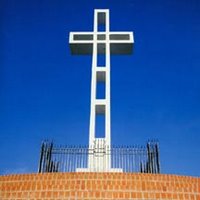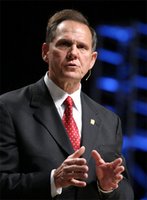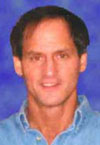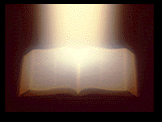Hoaxbuster Snopes makes Ten Commandments changes
But pastor who found inaccuracies says clarifications still needed
Posted: November 29, 2006
1:00 a.m. Eastern
By Bob Unruh
© 2006 WorldNetDaily.com
A community church pastor who invited the Internet hoaxbusters
Snopes.com and
TruthOrFiction.com to
fix errors of fact in their reports on the Ten Commandments at the U.S. Supreme Court says the changes made by Snopes are good, but more are needed.
Todd DuBord's research into the artistic representations of the Ten Commandments was profiled
by WND in an article about the Supreme Court and a second story
about the Monticello and Jamestown historic sites.In his invitation to the Internet sites,
DuBord documented misrepresentations including one that the two plates of stone Moses is holding in one of the pieces of art are blank, so they don't necessarily represent the Ten Commandments.
His question was: How many other stone tablets did Moses carry down from Sinai?
While DuBord reported that he'd gotten no formal response to his suggestions and documentation, he did notice that Snopes had adjusted some of its explanations.
"Thank you for taking off the word 'two' in the 'two representations of Moses which adorn the Supreme Court building,' since as I pointed out in my research to you (seen at
www.lacconline.org) there are at least four (actually in the Grand Hall the metope that bears Moses' facial image, with two small tablets beside it, is repeated eight times in the Hall, but it is technically the same image – so I didn't count it eight times)," DuBord said in a follow-up.
And while he agreed with the idea of restating the description of the Eastern Pediment from: "And although many viewers might assume Moses is holding a copy of the Ten Commandments in this depiction, the two tablets in his arms are actually blank," as: "The two tablets Moses holds in his arms are actually blank, without inscription," he said that could be better.
"Frankly, it sounds to me like you've merely restated and implied the same thing: we don't know if these tablets are the Ten Commandments," DuBord wrote.
Since they're 50 feet above the ground, any inscription wouldn't be visible to most visitors anyway, he said. "So, I wondered, why even state they are 'blank, without inscriptions'? There are dozens of books, tablets, and scrolls all over the architecture of the Supreme Court building – should we now question their identity (even when associated with such obvious characters like Moses) just because they are blank?"
"If the South Wall Frieze inside the courtroom portrays Moses holding one of the tablets, with Commandments six through ten written in Hebrew, and the eight ornamental metopes of him in the Great Hall bear two tablets in each, can we not reasonably assume he is holding the same on the East Pediment display of the same building?
"What is the other option?" he asked.
"If Snopes were to say anything, based upon the clear evidence of the rest of the building, outside of Jewish faith and history, I would expect you to say, 'These tablets, though blank, obviously represent the Ten Commandments, consistent with the rest of the displays in the Building,'" he said.
But DuBord did object to the sniping by Snopes, apparently at him, since he raised the issue.
An old reference to one symbol, for example, used to say: "As discussed in the next item, these symbols can represent something other than the Ten Commandments." DuBord said the new explanation reads: "Some critics contend that anything that is tablet-shaped cannot possibly be interpreted as representing the U.S. Constitution, because that document was 'not written on tablets.' But one could use that same argument to contend that anything bearing the common version of Roman numerals cannot possibly represent the Ten Commandments, because that numbering system was not yet in use at the time of the events described in Exodus."
DuBord said that was missing the point.
"I’m not debating the generic use of all tablets as representing any law, but the two tablets that are shaped identical to those on the oak doors, being held by Moses on the Eastern Pediment, and right next to his face on the eight ornamental metopes that decorate the great hall. To conclude that these tablets on the oak doors are different from the same tablets represented as the Ten Commandments in nine other places on the U.S. Supreme Court building is just plain and simple oversight and logical denial. "
"Remember, there are ten Roman numerals on them, which are a reference to something, and your only other conclusion is that they represent ten amendments to the Constitution. But, even by the U.S. Supreme Court’s definition above, the ten amendments are not 'ancient laws,' having been drafted just a few centuries ago and, therefore, don’t even fit within the parameters of their definition of 'Symbols of Law,'" DuBord said.
"So, if the tablets on the oak doors don’t represent 'The Ten Commandments' and the ten amendments are also not 'ancient laws,' what other identification is there for these oak-door 'Symbols of Law'? Is there some other western art that depicts two tablets, with half-moon tops and the Roman numerals I-X, that represent other than the Ten Commandments?"
He also noted that Snopes' reference for calling the East Wall Frieze representation the Ten Amendments is a letter which experts have suspected of being a forgery.
DuBord said documents expert Catherine Millard, who has spent decades verifying historical documents, statements and representations, suspects that particular letter, in which the artist refers to the representation as the amendments, is not authentic.
Snopes' new footnote defends the authenticity of the suspect letter, which doesn't even carry the artist's signature – in contrast to his many other letters, saying "several prosaic reasons" might explain the differences "such as that the item is a draft of a letter."
"Would it not make more sense, as I pointed out in my last correspondence, to reveal the reasonable doubt for the letter’s originality, favoring the identity of the East Wall Frieze tablet to the virtually identical tablet Weinman created (on The Oscar Solomon Memorial) in the same city? (Both tablets are inscribed with Roman numerals I-X, both are being leaned upon in their portraits, and both bear similarity and consistency with the rest of the Ten Commandment depictions on the art of the U.S. Supreme Court Building and elsewhere in the capital itself). And, as I pointed out in my former letter, we have an undisputed letter from Weinman to his explanation of the tablet on the Oscar Solomon Memorial as being none other than the Ten Commandments," DuBord said.
DuBord also noted that the Supreme Court itself, until 1987, identified that representation as the Ten Commandments, after which it evolved into a representation of "ancient laws" and eventually the "ten amendments."
He also contested the comments that all of the figures and representations stand for "secular" law.
"The truth, however, is that, once upon a time, the Ten Commandments had a huge interplay with American government and law," he said.
The North Carolina Supreme Court, for example, in a 1917 decision, said, "Our laws are founded upon the Decalogue, not that every case can be exactly decided according to what is there enjoined, but we can never safely depart from this short, but great, declaration of moral principles, without founding the law upon the sand instead of upon the eternal rock of justice and equity," he noted.
"I'm not trying to win a debate with you. I'm only a rural mountain pastor, who is trying to set the record straight, completely," he wrote. In that vein, he said, he was admitting one mistake of his own.
"I was wrong about how many depictions of Moses and/or the Ten Commandments were on the Supreme Court. I said there were six, when there were actually seven." No. 7 is on the frame of the bronze gates that separate the courtroom from the aisle, he said.
In his letter inviting the websites to correct their references, he noted millions go to those sources for "the straight scoop on Internet and other legends." It would be good to have those correct, he said.
The
Snopes article is: "Religious symbols and references abound in U.S. capital buildings and the words of America's founders" while the
TruthOrFiction item is "Evidences of Faith in the Buildings, Memorials, and Forefathers of the United States-Truth!, Fiction! & Unproven!?"
Snopes did not respond to a WND request for comment. TruthOrFiction e-mailed WND asking for elaboration on the question, but then did not follow up.
Dubord's research is
available online.And his message from July 23, 2006, on this issue also can be heard immediately, and for free, on the
church website at www.lacconline.org.His messages can be downloaded at
www.iTunes.com, by typing in "almanor" or "dubord."
 In a major victory for backers of San Diego's Mt. Soledad cross, an appeals court ruled today in favor of a voter measure that authorized transfer of the land beneath the memorial to the federal government.
In a major victory for backers of San Diego's Mt. Soledad cross, an appeals court ruled today in favor of a voter measure that authorized transfer of the land beneath the memorial to the federal government.






